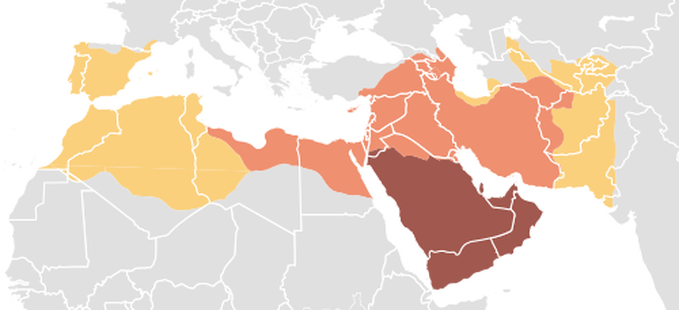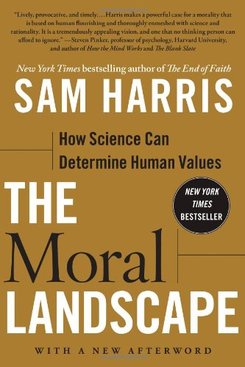
Chiefly, Anselm was famous for the Proslogian, written in 1077-1078. As he tells us in the preface of that work, Anselm wanted to find, "a single argument that needed nothing but itself alone for proof, that would by itself be enough to show that God really exists; that he is the supreme good, who depends on nothing else, but on whom all things depend for their being and for their well-being." That “single argument” is the one that appears in chapter 2 of the Proslogion, and the one that today we call the ontological argument (so named by Kant—the medievals simply called it Anselm's Argument). Versions of this argument have been defended and criticized by a succession of philosophers from Anselm's time straight through to the present day. Heck, even Stephen Colbert mentioned it in his google talk in 2012. Correctly understood, Anselm's argument can be summarized as follows:
1. That than which nothing greater can be thought, can be thought.
2. If that than which nothing greater can be thought can be thought, it exists in reality.
Therefore:
3. That than which nothing greater can be thought exists in reality.
That's it. Anselm, according to the Stanford Encyclopaedia of Philosophy, thought that "once we have formed this idea of that than which nothing greater can be thought, then we can see that such a being has features that cannot belong to a possible but non-existent object. In other words, hypothesis (2) is true. For example, a being that is capable of non-existence is less great than a being that exists necessarily. If that than which nothing greater can be thought does not exist, it is obviously capable of non-existence; and if it is capable of non-existence, then even if it were to exist, it would not be that than which nothing greater can be thought after all. So if that than which nothing greater can be thought can be thought — that is, if it is a possible being — it actually exists."
Philosophers have of course poked many different holes in this argument for a millennium. Try it for yourself. It's fun! But the one I want to focus on here is the leap Anselm makes between the ideas of the mind and the reality of the universe. A new reader sent me this comment this week: "One of the fundamental questions I ask and have been asked by my philosophy-minded colleagues is the relationship between matter and non-matter and how we (as matter) would ever be able to learn about non-matter?" I'm still working on understanding what this particular reader has in mind when he talks about non-matter, but generally the realm of thoughts and qualities are considered non-matter by idealists or dualists. The redness of a sunset, the taste of a wine, the "bat-ness" of being a bat. But recent neurological investigations into our use of metaphors helps explain how we make the leap from facts and observations about the concrete material world to the realm of our ideas about that material world. Here is an excerpt from a fantastic article entitled Metaphors Are Us by Robert Sapolsky, professor of biology and neurology at Stanford University, to help explain what I'm talking about.
---------------------
"We’re not so special after all. But there are still ways that humans appear to stand alone. One of those is hugely important: the human capacity to think symbolically. Metaphors, similes, parables, figures of speech—they exert enormous power over us. We kill for symbols, die for them. In recent years scientists from leading universities, including UCLA, University College London, and Yale, have made remarkable insights into the neurobiology of symbols. A major finding from their work is that the brain is not very good at distinguishing between the metaphorical and literal. In fact, as scientists have shown us, symbols and metaphors, and the morality they engender, are the product of clunky processes in our brains. Symbols serve as a simplifying stand-in for something complex. (A rectangle of cloth with stars and stripes represents all of American history and values.) And this is very useful. Symbolic language brought huge evolutionary advantages. This can be seen even in the baby steps of symbolism of other species. When vervet monkeys, for instance, spot a predator, they don’t just generically scream. They use distinct vocalizations, different “proto-words,” where one means, “Aiiiiii!, predator on the ground, run up the tree,” and the other means, “Aiiiiii!, predator in the air, run down the tree.” Language pries apart a message from its meaning, and as our hominid ancestors kept getting better at this separation, great individual and social advantages accrued. We became capable of representing emotions in the past and possible emotions in the future, as well as things that have nothing to do with emotion. How did our brains evolve to mediate this complexity? In an awkward way. The best way to shine a light on this unwieldy process is through metaphors for two feelings critical to survival: pain and disgust.
Consider the following: you stub your toe. Pain receptors there send messages to the spine and on up to the brain, where various regions kick into action. This is the meat-and-potatoes of pain processing, found in every mammal. But there are fancier, more recently evolved parts of the brain in the frontal cortex that assess the meaning of the pain. Maybe it’s bad news: your stubbed toe signals the start of some unlikely disease. Or maybe it’s good news: you’re going to get your firewalker diploma because the hot coals made your toes throb. Much of this assessing occurs in a frontal cortical region called the anterior cingulate. This structure is heavily involved in “error detection,” noting discrepancies between what is anticipated and what occurs. And pain from out of nowhere surely represents a discrepancy between the pain-free setting that you anticipate versus the painful reality. Now let’s go a little deeper, based on work by Naomi Eisenberger at UCLA. While lying in a brain scanner, you play a game of virtual catch, where you and two people in another room toss a cyberball around on a computer screen. (In reality, there aren’t two other people, only a computer program.) In the control condition, you’re informed mid-play that there’s a computer glitch and you’re temporarily off-line. You watch the virtual ball get tossed between those two people. Now in the experimental setting, you’re playing with the other two and suddenly they start ignoring you and only toss the ball between them. Hey, how come they don’t want to play with me anymore? Junior high all over again. And the brain scanner shows that the neurons in your anterior cingulate activate. In other words, rejection hurts. “Well, yeah,” you might say. “But that’s not like stubbing your toe.” It is to your anterior cingulate. Both abstract social and literal pain impact the same cingulate neurones. We take things a step further with work by Tania Singer and Chris Frith at University College London. While in a brain scanner, you’re administered a mild shock, delivered through electrodes on your fingers. All the usual brain regions activate, including the anterior cingulate. Now you watch your beloved get shocked in the same way. The brain regions that ask, “Is it my finger or toe that hurts?” remain silent. It’s not their problem. But your anterior cingulate activates, and as far as it’s concerned, “feeling someone’s pain” isn’t just a figure of speech. You seem to feel the pain too. As evolution continued to tinker, it did something remarkable with humans. It duct-taped (metaphorically, of course) the anterior cingulate’s role in giving context to pain into a profound capacity for empathy. We’re not the only species with an anterior cingulate, but studies show the human anterior cingulate is more complex than in other species, with more connections to abstract, associational parts of the cortex, regions that can call your attention to the pains of the world, rather than the pain in your big toe. And we feel someone else’s pain like no other species. We extend it over distance to help a refugee child on another continent. We extend it over time, feeling the terror of what are now mere human remains at Pompeii.
Consider another domain where our brains’ shaky management of symbols adds tremendous power to a unique human quality: morality. You’re in a brain scanner and because of the scientist’s weirdly persuasive request, you bite into some rotten food. Something rancid and fetid and skanky. This activates another part of the frontal cortex, the insula, which, among other functions, processes gustatory and olfactory disgust. It sends neuronal signals to face muscles that reflexively spit out that bite, and to your stomach muscles that make you puke. All mammals have an insula that processes gustatory disgust. After all, no animal wants to consume poison.But we are the only animal where that process serves something more abstract. Think about eating something disgusting. Think about a mouthful of centipedes, chewing and swallowing them as they struggle, wiping off the little legs that you’ve drooled onto your lips. Whammo goes the insula, leaping into action, sending out its usual messages of disgust. Now think about something awful you once did, something deeply shameful. The insula activates. It has been co-opted into processing that human invention: moral disgust. Remarkably, the way our brains use symbols to discern disgust and morality also contributes to political ideology. Work by scientists such as Kevin Smith of the University of Nebraska reveals that on the average conservatives have a lower threshold for visceral disgust than do liberals. Look at pictures of excrement or open sores undulating with maggots, and if your insula goes atypically berserk, chances are that you’re a conservative—but only about social issues, say, gay marriage, if you’re heterosexual. And if your insula just takes those maggots in stride, chances are you’re a liberal. Our wobbly, symbol-dependent brains are molded by personal ideology and culture, shaping our perceptions, emotions, and convictions. Many cultures inculcate their members into acquiring symbols that repel, doing so by strengthening specific neural pathways from the cortex to the insula, pathways that you’d never find in another species. Depending on who you are, those pathways could be activated by the sight of a swastika or of two men kissing. Or perhaps by the thoughts of an abortion, or of a 10-year-old Yemeni girl forced to marry an old man. Our stomachs lurch, and we feel the visceral certainty of what is wrong. And we belong. The same brain apparatus is behind symbols that move us to our most empathic, inclusive, and embracing.
---------------------
The article goes a little off track from the point I'm making, as Sapolsky explains the physical locations of metaphor for two emotional phenomena, but the point still stands: our physical brain (specifically the anterior cingulate and the insula regions in Sapolsky's examples) is able to lump attributes together into groups and then name those groups. This use of symbols and metaphors and where they reside in the brain helps to explain the bridge that dualists think exists over a chasm between two discrete realms, when in fact the bridge is just another metaphor our physical brains have constructed to help make sense of the material world we are trying to live, survive, and thrive in. This is the explanation from evolutionary philosophy of why the ontological argument has no merit. The symbolical and metaphorical pictures in our mind are just physical brain states. They have no bearing or implication on what actually exists in the cold uncaring universe around us that we have so recently evolved within. Anselm's insistence makes no sense that just because we can think of "that than which nothing greater can be thought," it must follow that that thing must exist. Why would it? We can't produce other figments of our imagination.
Let's cut this short now and look at what I had to say about Anselm in my analysis of the survival of the fittest philosophers.
--------------------------------------------------------------------------
Anselm of Canterbury (1033-1109 CE) was the founder of scholasticism and is famous in the West as the originator of the ontological argument for the existence of God.
Survives
Not so much a philosophy or a theology as a method of learning, scholasticism places a strong emphasis on dialectical reasoning to extend knowledge by inference, and to resolve contradictions. Scholastic thought is also known for rigorous conceptual analysis and the careful drawing of distinctions. It originated as an outgrowth of, and a departure from, Christian monastic schools. Anselm may not have used it properly or well, but this rebirth of logic eventually led to the Reformation, scientific method, and the downfall of mystic revelation.
Needs to Adapt
Gone Extinct
Anselm reasoned that if "that than which nothing greater can be conceived" existed only in the intellect, it would not be "that than which nothing greater can be conceived," since it can be thought to exist in reality, which is greater. It follows, according to Anselm, that "that than which nothing greater can be conceived" must exist in reality. This was criticized on the grounds that humans cannot pass from intellect to reality. There are many things that humans can conceive of that do not exist in reality. A perfect circle for example.
Anselm also stated, “Nor do I seek to understand that I may believe, but I believe that I may understand. For this, too, I believe, that, unless I first believe, I shall not understand.” He held that faith precedes reason, but that reason can expand upon faith. Thus formally accepting false premises and confirmation bias into the institution of religion.
--------------------------------------------------------------------------
Almost home now. I can hardly wait to continue this use of scholastic reasoning to plow through two more mediocre medieval philosophers before we get to the good stuff. Onwards!






